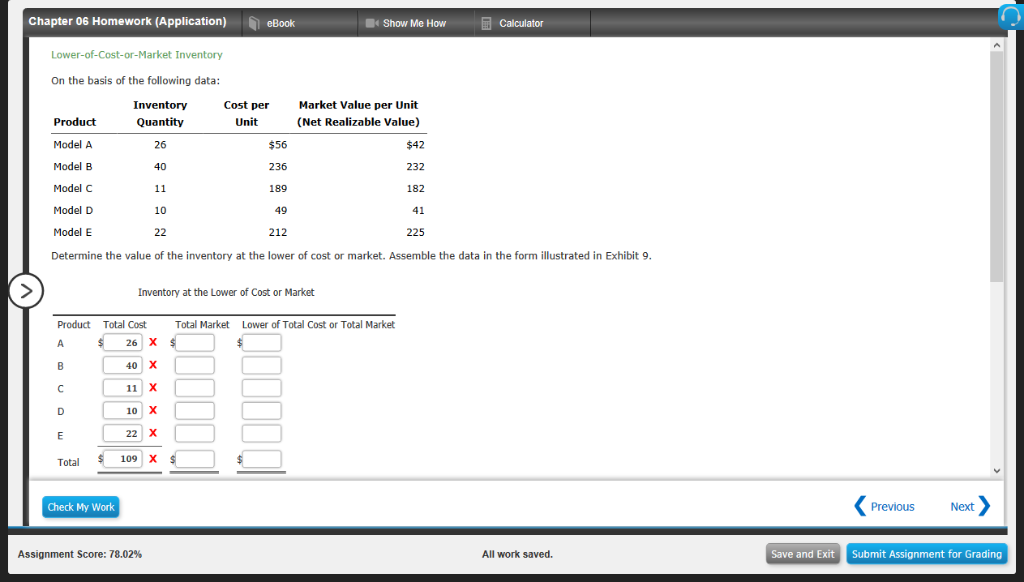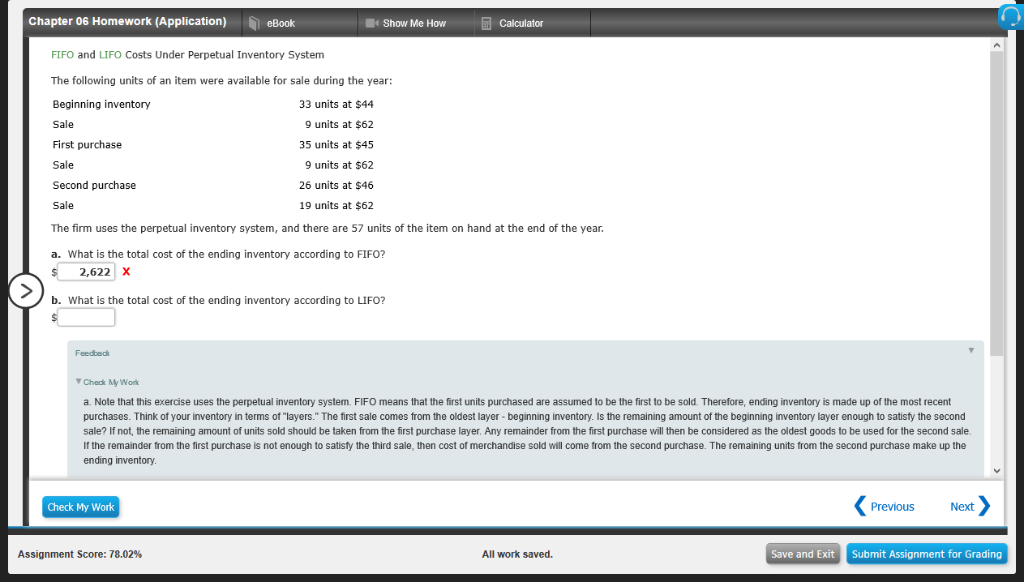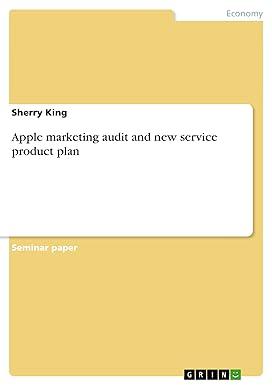

Chapter 06 Homework (Application) eBook Show Me How Calculator Lower-of-Cost-or-Market Inventory On the basis of the following data Market Value per Unit Inventory Quantity 26 40 Cost per Unit (Net Realizable Value) $42 232 182 Model A Model B Model C Model D Model E Determine the value of the inventory at the lower of cost or market. Assemble the data in the form illustrated in Exhibit 9 $56 236 189 49 212 10 225 Inventory at the Lower of Cost or Market Product Total Cost Total Market Lower of Total Cost or Total Market 26 X 40 X 11 X 10 X 22 X 109 X Check My Work Next Assignment Score: 78.02% All work saved. Save and Exit Submit Assignment for Grading Chapter 06 Homework (Application) eBook Show Me How Calculator FIFO and LTFO Costs Under Perpetual Inventory System The following units of an item were available for sale during the year: Beginning inventory Sale First purchase Sale Second purchase Sale The firm uses the perpetual inventory system, and there are 57 units of the item on hand at the end of the year. a. What is the total cost of the ending inventory according to FIFO? 33 units at $44 9 units at $62 35 units at $45 9 units at $62 26 units at $46 19 units at $62 2,622 X b. What is the total cost of the ending inventory according to LIFO? Feedbeck Check My Work a. Note that this exercise uses the perpetual inventory system. FIFO means that the first units purchased are assumed to be the first to be sold. Therefore, ending inventory is made up of the most recent purchases. Think of your inventory in terms of "layers." The first sale comes from the oldest layer beginning inventory. Is the remaining amount of the beginning inventory layer enough to satisty the second sale? If not, the remaining amount of units sold should be taken from the first purchase layer. Any remainder from the first purchase will then be considered as the oldest goods to be used for the second sale If the remainder from the first purchase is not enough to satisty the third sale, then cost of merchandise sold will come trom the second purchase. The remaining units from the second purchase make up the ending inventory Check My Work PreviouS Next Assignment Score: 78.02% All work saved. Save and Exit Submit Assignment for Grading








